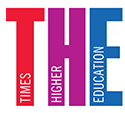Academics experiment with allowing undergraduates to text each other during assessments, and get positive response
Texting between students in exams should not be banned but rather actively encouraged, according to academics behind one of the most detailed explorations of the issue to date.
Researchers in South Africa looked at what would happen if students were given access to mobile instant messaging services and could communicate with their peers while working out the answers to test questions.
The study’s authors say that as the ability to solve problems through interaction with others is a skill widely sought by employers, the long-established notion that exchanging messages during exams is cheating may need to be reconsidered, particularly because collaborating remotely to find solutions has become ever more important in light of the Covid-19 pandemic.
As a first step, researchers Cecile Janse van Rensburg, Stephen Coetzee and Astrid Schmulian developed a bespoke instant messaging service to use during several types of assessment – essays, calculations and multiple-choice tests – in the University of Pretoria’s accounting department. All the tests had traditionally been sat in an invigilated pen-and-paper environment, but they were conducted online because of the pandemic.
Not every student joined the discussion on the messaging service, with participation ranging from 40 per cent to 71 per cent, depending on the type of assessment. But students’ feedback was largely positive, with 79 per cent of students saying they had read the messages and 74 per cent reporting that they would like to use instant messaging in future assessments.
About six in 10 said the instant messages had improved their understanding of the question or the content, and 45 per cent reported having changed their answers as a result of a communication.
Analysis of the exchanges conducted by the researchers indicated that students’ messages most commonly sought to organise “existing knowledge” and “establish common ground”, but there was also evidence of “extending knowledge and collaborative problem-solving”, often via “argumentative” messages.
The study authors told Times Higher Education that lecturers should be more open-minded towards the use of instant messaging during assessments.
“While we acknowledge that there is a time and a place for high-stakes individual assessments of knowledge, particularly for certification purposes in professional higher education, we believe that a programme of assessment should also include assessment for learning and not only assessment of learning,” they said.
“Our students will be faced with high-stakes decisions and situations one day in practice, where they will seek the inputs of others, and it was this scenario that we attempted to recreate in making our assessments more authentic.”
The results of the Pretoria experiment have been published in Assessment & Evaluation in Higher Education.

0 Comments